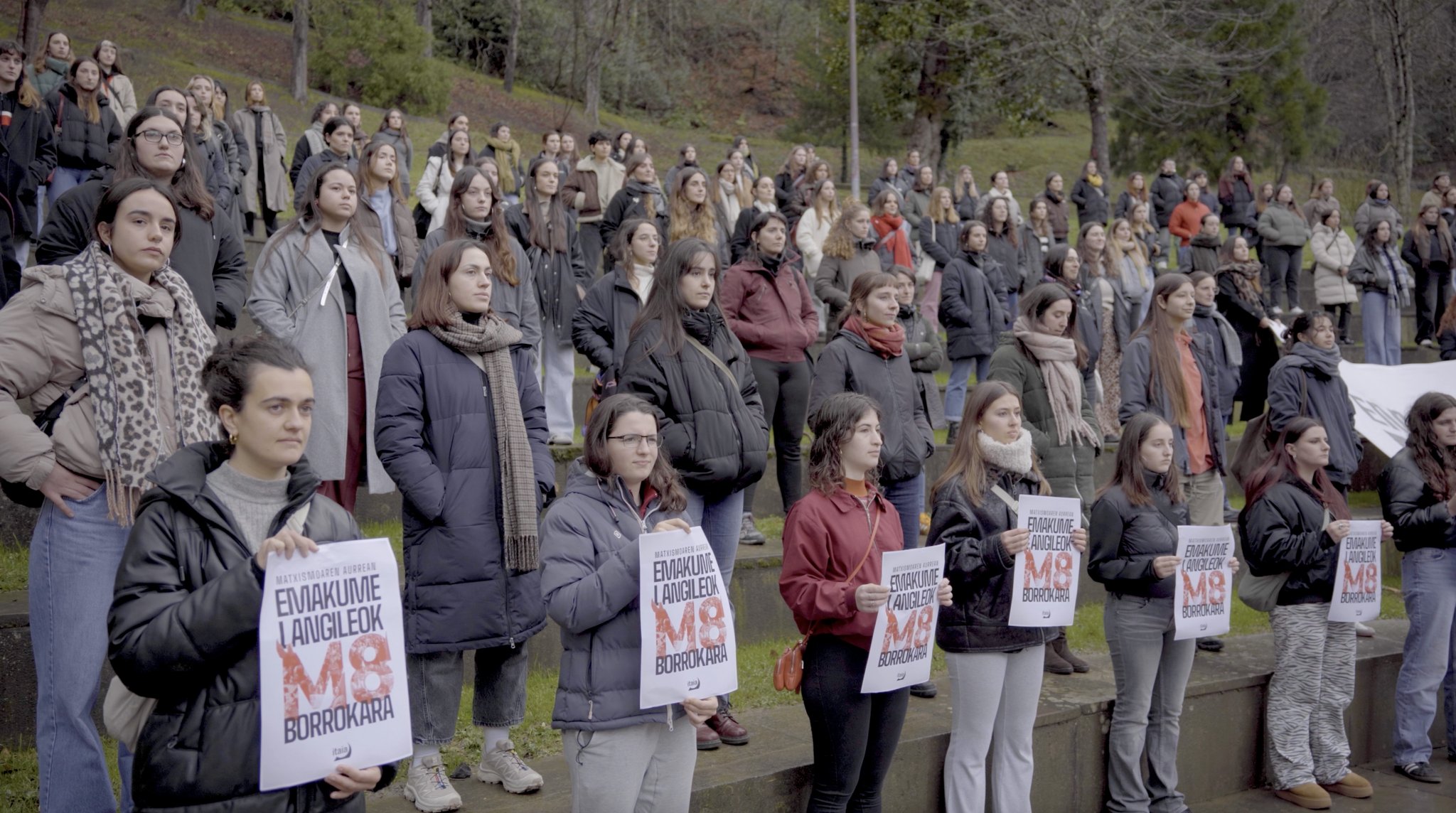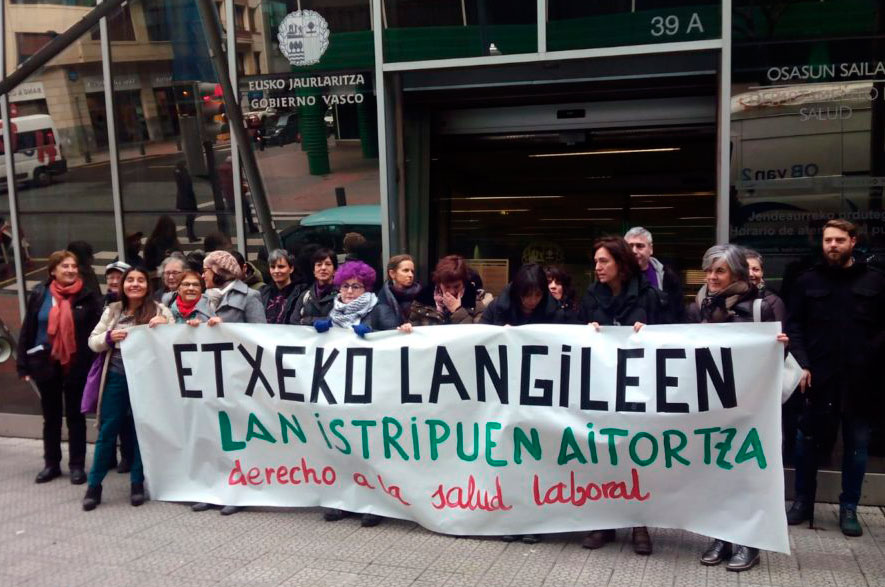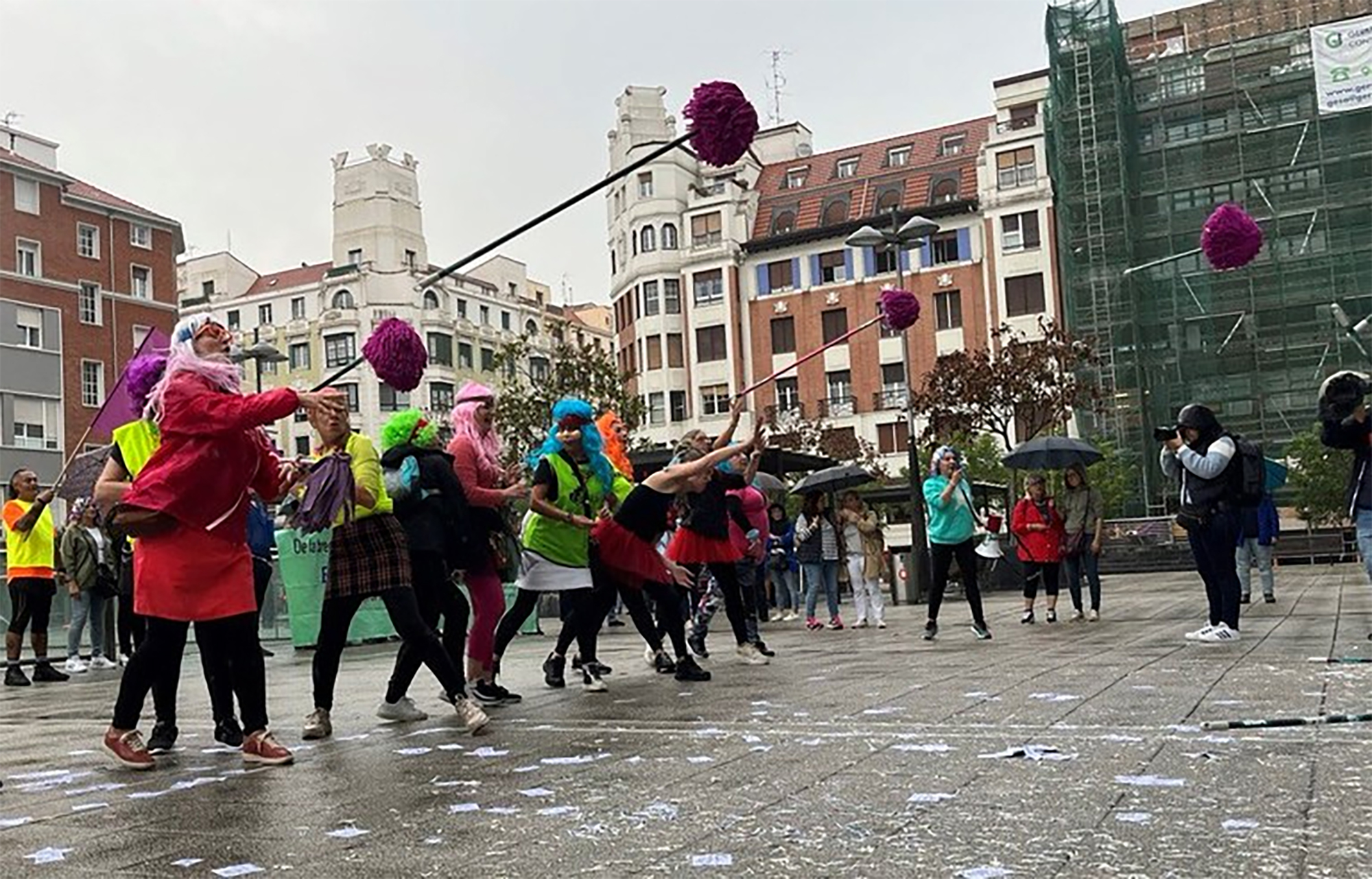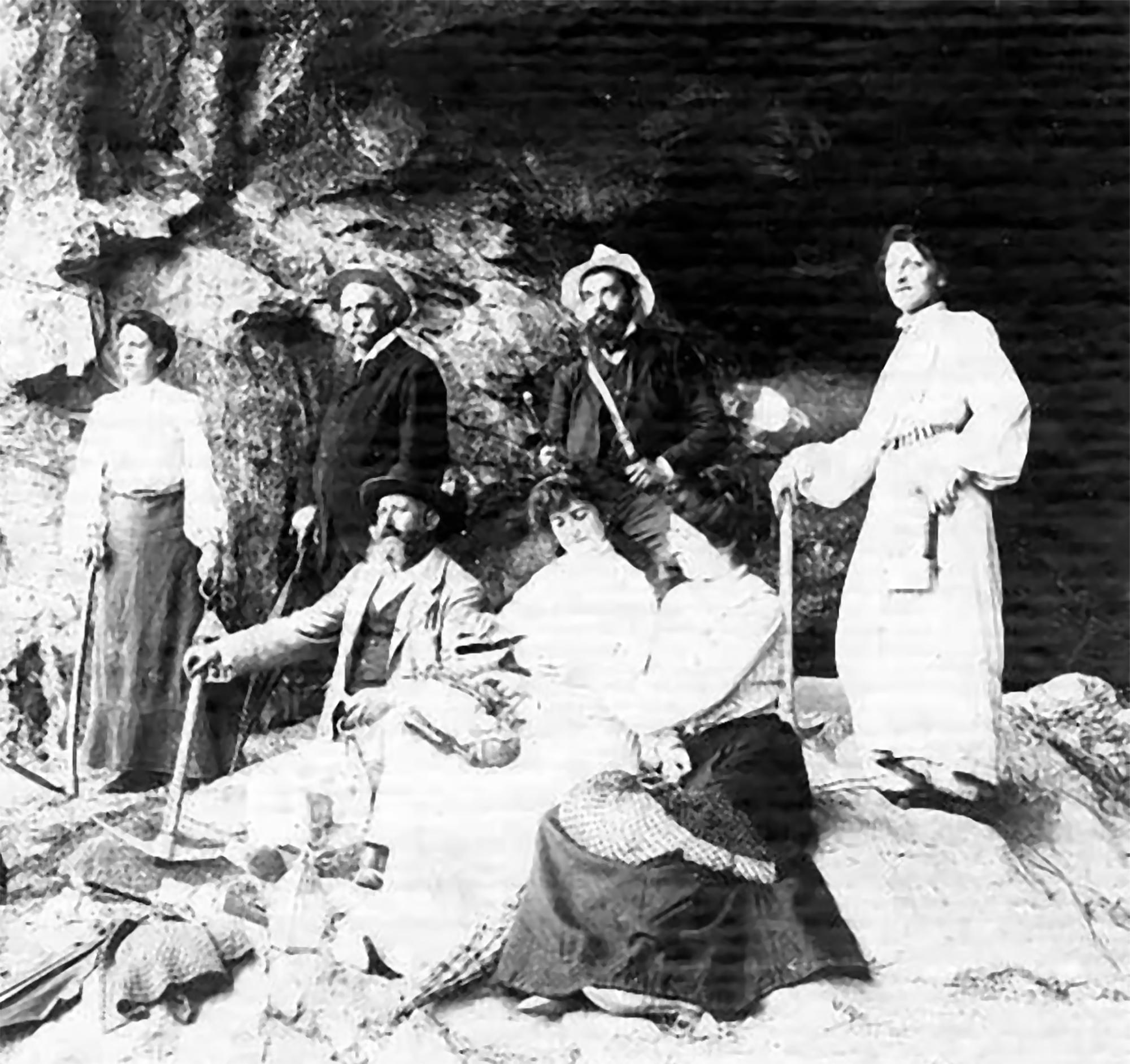"Household employees are the most invisible among the invisible."
- In her doctoral dissertation, historian Eider of God analyzed the evolution of domestic service around the construction of the identity of working women. His doctoral thesis was defended in September 2016 and has received two awards for his work. Therefore, he has published a book and is currently working to publish another one. We have taken advantage of your intervention in the Centro Cultural Plaza Beltza de Sopela and have carried out an interview.

He has analyzed the evolution of domestic service during Franco and the transition.
That's right. For this I have done a great documentary work and many interviews, especially in Gran Bilbao, but I have also been with women from Madrid and Valencia, among others. After all, it was a centralist dictatorship, so the documentation is in Madrid, and the organization is the same in all communities. Although in my work I have paid particular attention to the Basque Country, the context is at the level of the Spanish State.
A great deal of effort must be made to create such a job. How many interviews have you conducted?
I've done about 30 of them professionally, but informally a lot, I wouldn't be able to define them. I've also done some by groups, and most of them don't appear in the book with the name and last name, but when it comes to doing the work, I've been made very useful and meaningful, especially to know where I wanted to go and need it.
Why did you choose this topic?
When I was studying History at the University, we studied the evolution of female labor rates. I realized that in all the graphs there was a parable in the form of U, that is, in the 19th century the point is very high, while in the Franco era it is very low and from the 1970s it rises. I didn't know what was causing this sudden crash. In fact, my grandmothers were working, also my friends and acquaintances. The point is that statistics are made according to the speech.
During Francoism, they saw it very badly that married women worked. They did, of course, but they always did it in a hidden way. In the Bilbaíno neighborhood of San Ignacio, for example, many women made cromos and toys, industrial work, but each from their home. This was very cheap for the company, because I didn't have to pay a house, a light, or anything like that.
In addition, I chose this issue because I wanted to give visibility to those who have always been hidden, and I think the most invisible among the invisible have been the home workers.
What was the profile of household employees?
As for Euskal Herria, they started working very young, at seven or eight years, with a maximum of fourteen. Most of those working in the Bilbao area were originally Biscayan, but over time there were more and more immigrants. In general, the home service was provided during the first years to deal with hunger, and subsequently to improve the quality of life. However, the profile depends on the time.
You've divided your work into three stages. What were the reasons why they worked in domestic service at each time?
The first stage is post-war. They did the home service because they had to deal with hunger. They didn't get salaries, they were given bed and food in return. In addition, it was a strategy to deal with repression, as if the locals had a good relationship with the regime, they could also benefit the home employees. My interviewees have not explained it to me, but I have read it in the documents. Somehow they knew that because they were poor or because they were the father of the republic, they couldn't study. Therefore, in addition to economic reasons, they also had political reasons.
As for domestic service, the situation was very complicated. They worked 24 hours, because they had to be alert and prepared even when they were sleeping. Of course, if something happened, for example, that the kids were kicking, they had to get up. In fact, at that time, there was a big job offer, so if you weren't satisfied, you could easily change your home. But the reality wasn't that. Strong ties were maintained with the children and elderly caregivers, which constituted an obstacle to denouncing the bad conditions or leaving the house. They didn't want to separate themselves from them, the owners of the house knew it and they made the workers emotional blackmail.
The second stage refers to half of the Franco regime, with a route of 35.5 kilometers. There was a lot of migration, especially from Burgos, Extremadura and Galicia, and above all to improve the quality of life. Therefore, the main reason was no longer hunger, but rather improving and having more opportunities, and for this, in many cases, they had no choice but to migrate and work in households. At this time, it was not right for women to work outside the home after getting married. So they worked at home 24 hours a day until they were wives. Then, for about eight hours. In addition, they changed the word ‘waiter’ and began to use the term ‘employee’.
The last stage is a time of transition. Parties and trade unions were engaged in the struggle, and in 1985 home service was regulated. However, they had regulated it in a very special way, and I say this in a very bad sense. For example, when you were discharged, you had to spend 29 days to start collecting the money, so even though you were sick, you didn't catch it. Nor did they have the right to unemployment. In fact, it was very difficult to claim the rights of domestic workers, as unions and parties were very masculinized. Finally, the feminist movement took over the struggle and created the Association of Domestic Workers, which is still alive today.
What relationship did they have with the owners?
The relationship is also completely different depending on the time. In the first stage it was said that they had a family relationship and that taking a woman for domestic service was something similar to an adoption. Of course, the employees of the house knew that that was not their family, and in general they found it very bad to be told, because they denounced that it was hypocrisy. As has been said, they did not receive any salary, but instead gave them home and food, but also the possibility of reinsertion. That is, they used domestic service as a system of re-education of the poor social class linked to the losers of the Civil War. Not all were supporters of the Republic, but those who were poor for Franco were automatically against the regime. In addition, they said it was a way of refining women.
The second stage is mixed. They began to receive the salary, but that image of family and adoption remained in force, justifying that the remuneration they paid was very low. However, at this time, home service began to be considered work.
The relationship they maintained in the last stage was, above all, between the employee and the employer, as the family model was completely disappeared. It is true that they were not like other workers, in general they were not treated the same and valued them the same way, but their work was regulated, there was a law and a movement behind that.
Were they denouncing poor working conditions?
Yes, of course. CNT and UGT had a specific department for household employees in the Republican era. During the Franco regime, however, it was very difficult to denounce, because it was not considered especially work, it was a non-regulated service and was treated by the families. However, I have seen letters. Several women wrote to the Franco's body asking him to regulate his work.
In the third stage, things were simplified, because the 1985 law, despite being bad, allowed complaints to be made. For example, throughout this decade, the majority of municipalities in the Autonomous Community of the Basque Country hired women to work as a home assistant. However, they were not employees of the City Hall. The City Hall gave money to the beneficiaries of these services, so that they would then pay for the service. These women didn't know each other, but they started putting up posters and meeting each other, and in 1989 they went on a community strike. Protests and mobilizations took place in many towns and cities throughout the country.
What kind of mobilizations?
Getxo workers, for example, were locked up in the City Hall and held several sit-ins. In addition, the household employees who led the demonstration on 8 March that year, under the slogan Ezkutaka, have become women.
And what did the results look like?
They were very varied. In some villages they managed to create a cooperative, for example in Erandio. The Getxo, for their part, were dismissed, and many more, were taken to other places in the Basque Country. After many trials, in 1995, a judgment of many millions of euros was given in its favour.
What did this achievement mean?
For the feminist movement, it was amazing, because it's a way to check the budgets of the feminist economy. In addition, the achievement made it clear that household employees exist, that the work they do is computable in currency and, therefore, must be valued. After all, it gave him great spectacularity, and that is very important.
What is the current situation like?
I would say that, despite having improved in some things, in many others we are going backwards. I believe that racism has increased, and I would venture to say that classism has also increased. The figure of the woman, who works for 24 hours, was completely missing, and today there are many of them, especially foreign women. Sometimes they have no more to work in secret. It happens that the employer doesn't want to do papers for fear of going to another job. There are also threats, and many times the workers know that if they denounce the bad conditions the owner of the house can call the police to tell them that they are here without papers.
However, as I said, we have improved on some things. The feminist movement is stronger than ever, we have more medicines and many women struggle to get legalization and regulation.
This interview was posted by Hiruka and we brought it to ARGIA thanks to the CC-by-sa license.
Martxoaren 8a hurbiltzen ari zaigu, eta urtero bezala, instituzioek haien diskurtsoak berdintasun politika eta feminismoz josten dituzte, eta enpresek borroka egun hau “emazteen egunera” murrizten dute, emakumeei bideratutako merkatu estereotipatu oso bati bidea... [+]
Martxoak 8aren izaera iraultzailea berreskuratzeko deia egin du Itaia emakumeen antolakunde sozialistak. Irene Ruiz Itaiako kideak azaldu digunez, “oldarraldi erreakzionarioaren eta matxismoaren aurrean proposamen iraultzailea hauspotu eta kontzientzia sozialista... [+]
1958an, emakume baserritarrek Donostiako Erdialdea hartu zuten, esnea saltzea galarazi zitzaiela salatu, eta baserritarren eskubideak aldarrikatzeko. Administrazioak esnearen esklusibotasuna Gurelesa enpresari eman zion, eta baserritarrek Bretxan saltzeari utzi behar izan... [+]
Equality, like pregnancy, exists or does not exist. When there is no equality, there is a difference, that is what you can measure and value. Perhaps the consequences of equality may be unfair to some, but this would place the debate on the consequences, not at all on equality... [+]
Errenteria (Gipuzkoa), 1892. In the caves of Aizpitarte the first archaeological excavations of Gipuzkoa were carried out, at the hand of the group led by Count Lersundi. Eleven years later, in 1903, the king of Spain, Alfonso XIII, visited the site and with this excuse... [+]
I don't know if you've noticed, but lately, reactionary and conservative messages are spreading across social media. One of them is the trend of the tradwife. That word is the abbreviation of the traditional concept of wifi, that is, the traditional wife. This movement proposes to... [+]






















